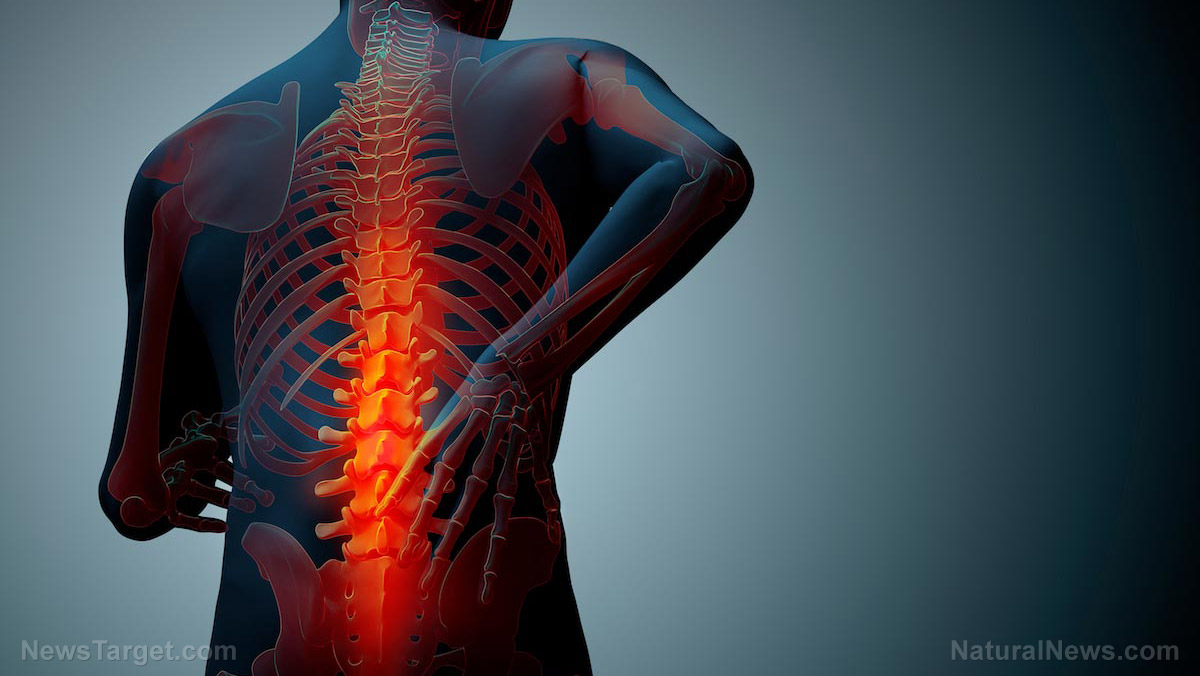Physical Therapy — sources, health benefits at NaturalPedia.com
12/15/2017 / By Frances Bloomfield

Physical therapy, also known as physiotherapy, is a branch of rehabilitative health that makes use of specially designed exercises and equipment to restore movement and physical function in patients. Apart from helping patients build up or regain their strength and motion, physical therapy can be utilized in pain management as well. The wide scope of physiotherapy is such that the World Confederation for Physical Therapy had this to say about it:
“[Physical therapy] is concerned with identifying and maximizing quality of life and movement potential within the spheres of promotion, prevention, treatment/intervention, habilitation and rehabilitation. This encompasses physical, psychological, emotional, and social well-being.”
Due to its wide variety of applications, there exist numerous types of physical therapy. According to MedicalNewsToday.com, these include but aren’t limited to:
- Orthopedic physical therapy: This aims to correct functional impairments of the musculoskeletal system, which is comprised of the bones, muscles, ligaments, joins, and tendons. People who’ve suffered fractures, tendonitis, or sprains typically undergo orthopedic physical therapy, as do those recovering from orthopedic surgery.
- Geriatric physical therapy: Intended for elderly patients, those receiving geriatric physical therapy go through it to help them maintain or achieve good levels of physical health. Other times, geriatric physical therapy will be used to restore mobility or decrease the pain felt by patients.
- Neurological physical therapy: Those who have or had neurological diseases or injuries will go through this, as these patients will often lose many of their functions and become unable to perform basic actions.
Regardless of the type of physical therapy, a session will usually go like this: first, a patient will go through a physical exam and evaluation, which can entail being put through testing procedures and being queried on their health history. Afterwards, the patient will be given a clinical diagnosis, prognosis, and a plan of care, which includes short- and long-term goals. Following evaluation and diagnosis, the patient will receive physical therapy treatments and intervention. Often, the patient will also be given self-management recommendations.

Health benefits of physical therapy
Because physical therapy can strengthen the muscles, boost endurance, and increase joint stability, it’s considered an excellent option for chronic pain management. As per EverydayHealth.com, physical therapy is highly advantageous for chronic pain patients as it can teach them how to move in a safe and functional manner, while also making their bodies stronger. In fact, the article goes on to state that physical therapy has helped patients deal with the chronic pains that result from osteoarthritis, fibromyalgia, rheumatoid arthritis, and chronic headaches.
Similarly, these qualities are why physical therapy is equally beneficial for people with multiple sclerosis. The efficacy of physical therapy is such that according to Healthline.com, physical therapy can be helpful during various stages of multiple sclerosis, even during the beginning of the condition. Undergoing physical therapy during the earliest stages of multiple sclerosis can help develop strength and stamina, avoid worsening the symptoms, and learn how to cope with the bodily changes that multiple sclerosis brings.
In addition, physical therapy can provide relief from many other diseases, most notably:
- Cardiopulmonary diseases like post-myocardial infarction, cystic fibrosis, and chronic obstructive pulmonary disease
- Carpal tunnel syndrome
- Lymphedema
- Neurological conditions like vestibular dysfunction, stroke, and spinal cord injuries
- Pediatric conditions like cerebral palsy, developmental delays, muscular dystrophy
- Pelvic floor dysfunctions like urinary incontinence
- Sports-related injuries like tennis elbow
- Trigger finger
Although physical therapy has multiple benefits, it’s best as part of a solution instead of being the only one. Combining physical therapy with other treatments such heat and cold therapy or nutritional supplements are recommended for those struggling with intense chronic pain.
Body systems supported by physical therapy
Physical is extremely helpful for people with musculoskeletal conditions. The exercises and equipment under physical therapy can both relieve pain and restore function to the different organs and parts that comprise the musculoskeletal system.
As per Burke.org, physical therapy can be used to manage the symptoms of heart and lung diseases. Physical therapy can complement cardiac rehabilitation and assist in the restoration of cardiac function; in addition, physical therapy can be strengthen and condition the lungs, which leads to improved quality of life for patients who’ve lung problems.
For a more comprehensive look at what organs and organ systems can be supported by physical therapy, feel free to visit MoveForwardPT.com. A project of the American Physical Therapy Association, the website offers visitors an interactive look at what organs can benefit from physical therapy.
Where to learn more
- 7 Ways to Relax Your Muscles And Relieve Pain
- Movement dysfunction, corrective exercise, and holistic health
- Physiotherapy Treatments and its Benefits
- Steroid injections do not provide long-term relief from tennis elbow (press release)
- Why Physical and Experiential Therapies Are Key To Prenatal Care
Summary
Physical therapy is a branch of rehabilitative health that’s suitable for many types of patients. The exercises and equipment utilized in physical therapy are meant to help patients regain or improve their physical abilities. As such, physical therapy is great for people suffering from chronic pain, multiple sclerosis, carpal tunnel syndrome, and many others. Moreover, physical therapy can strengthen and enhance the function of many body systems, including the musculoskeletal, cardiovascular, and respiratory systems.
Sources include:
Tagged Under: physical therapy




















